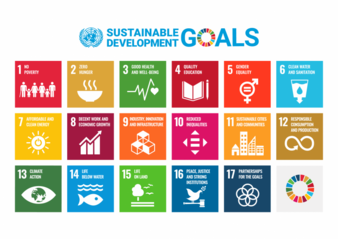18/07/2023 – Sustainability — auf Deutsch lesen
Lectra joins the United Nations Global Compact
Lectra supports the transformation of fashion, automotive, and furniture companies by providing them with technological solutions to accelerate their transition to a more efficient and sustainable Industry 4.0.
In February, Lectra launched a new roadmap and emphasized the importance of corporate social responsibility (CSR) in its strategy. The company presented its priority measures for 2023-2025 and joined the UN Global Compact to demonstrate its commitment to achieving the Sustainable Development Goals.
According to Daniel Harari, the Chairman and CEO of Lectra, CSR is a major focus for the company. Lectra has identified five main priorities in its CSR strategy: upholding the highest ethical standards, developing environmentally responsible offerings, fostering an inclusive and diverse working culture, reducing the company's environmental impact, and supporting future generations.
In recent years, Lectra has significantly strengthened its CSR initiatives. Since its establishment in 1973, the company has never faced any complaints regarding non-compliance with ethical standards. The company promotes exemplary ethics and has had a robust anti-corruption system in place since 2018. In 2022, 98% of Lectra's industrial purchases were covered by its CSR purchasing charter. Lectra plans to extend this charter to include Gerber Technology suppliers by 2023 and aims to enroll 90% of all industrial suppliers by 2025. Lectra also prioritizes local procurement and production, exemplified by the opening of its manufacturing facility in Tolland, United States.
Lectra recognized that textiles contribute to 90% of CO2 emissions throughout a cutting room's lifecycle. Therefore, the company offers solutions to its customers that optimize material usage, resulting in material savings of 5 to 10%. Lectra has expanded its software offerings to include material traceability, which enhances consumer awareness of product authenticity and provenance. This expansion was facilitated by Lectra's majority acquisition of TextileGenesis’ capital. By 2025, Lectra aims to systematically apply eco-design principles to its new equipment platforms to reduce its environmental footprint.




